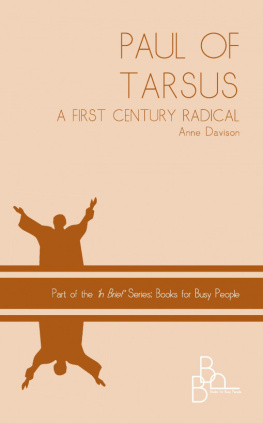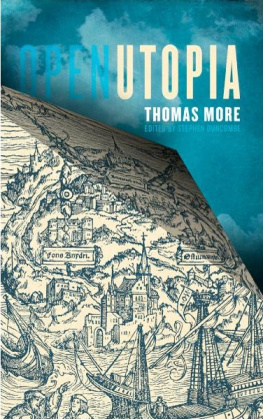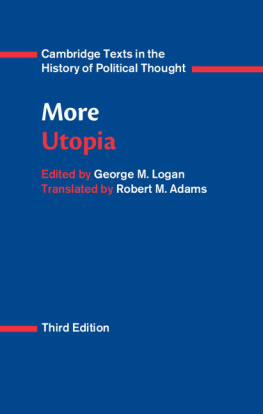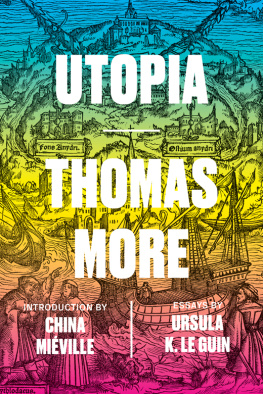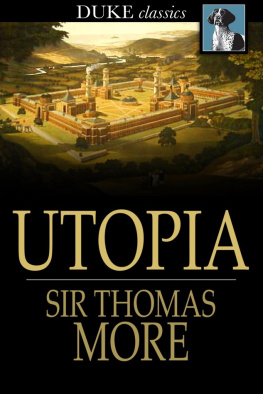
Series page
- Classic Thinkers
- Richard T. W. Arthur, Leibniz
- Daniel E. Flage, Berkeley
- J. M. Fritzman, Hegel
- Bernard Gert, Hobbes
- Dale E. Miller, J. S. Mill
- A. J. Pyle, Locke
- Andrew Ward, Kant
Copyright page
Copyright Joanne Paul 2017
The right of Joanne Paul to be identified as Author of this Work has been asserted in accordance with the UK Copyright, Designs and Patents Act 1988.
First published in 2017 by Polity Press
Polity Press
65 Bridge Street
Cambridge CB2 1UR, UK
Polity Press
350 Main Street
Malden, MA 02148, USA
All rights reserved. Except for the quotation of short passages for the purpose of criticism and review, no part of this publication may be reproduced, stored in a retrieval system, or transmitted, in any form or by any means, electronic, mechanical, photocopying, recording or otherwise, without the prior permission of the publisher.
ISBN-13: 978-0-7456-9216-6
ISBN-13: 978-0-7456-9217-3(pb)
A catalogue record for this book is available from the British Library.
Library of Congress Cataloging-in-Publication Data
Names: Paul, Joanne, author.
Title: Thomas More / Joanne Paul.
Description: Malden, MA : Polity, 2016. | Series: Classic thinkers | Includes bibliographical references and index.
Identifiers: LCCN 2016016386 (print) | LCCN 2016031201 (ebook) | ISBN 9780745692166 (hardback) | ISBN 9780745692173 (pbk.) | ISBN 9780745692197 (Mobi) | ISBN 9780745692203 (Epub)
Subjects: LCSH: More, Thomas, Saint, 1478-1535. | Philosophy, Renaissance.
Classification: LCC B785.M84 P38 2016 (print) | LCC B785.M84 (ebook) | DDC 192dc23
LC record available at https://lccn.loc.gov/2016016386
Typeset in 10.5 on 12 pt Palatino
by Toppan Best-set Premedia Limited
Printed and bound in Great Britain by CPI Group (UK) Ltd, Croydon.
The publisher has used its best endeavours to ensure that the URLs for external websites referred to in this book are correct and active at the time of going to press. However, the publisher has no responsibility for the websites and can make no guarantee that a site will remain live or that the content is or will remain appropriate.
Every effort has been made to trace all copyright holders, but if any have been inadvertently overlooked the publisher will be pleased to include any necessary credits in any subsequent reprint or edition.
For further information on Polity, visit our website:
politybooks.com.
Preface
I had not originally intended to write a book about Thomas More. He is too controversial a figure. He evokes too many emotive responses. He has been declared a saint, denounced as a murderer. To write a book about More is to invite fierce backlash, no matter what it says. Even a book about More's ideas, his thought and works, could prove deeply contentious.
And yet not to try is to continue to let such controversy cloud our understanding of More as a thinker. Thus, when given the opportunity to write an introduction to his thought, I took it. The intention of this book is to engage only fleetingly with the more controversial aspects of More's life such as whether or not he lived for a time as a monk or tortured heretics, or how the overwrought question of his sexual appetite might be settled. Instead I focus attention on his writing, all of his writing, in an attempt to grasp what More was trying to do in his own context and what legacy he may have bequeathed to future generations.
The year this book is published, 2016, marks 500 years since Utopia appeared in print. Utopia has not been out of print since, and is still read widely today; few books can boast such a popular history. More's neologism is now part of everyday language and has come to denote a genre as well as a way of thinking. All that being said, this is not a book about Utopia either. Although Utopia is More's most significant contribution to the world of ideas, it does little to help us understand him or his times. It is purposely opaque and invites more questions than it answers, which is almost certainly part of why it has remained so popular. In order to appreciate More's ideas and their relationship with the times in which he lived, we have to go beyond Utopia and explore his other writings. This will certainly give us a better insight into this monumental text. But it is my hope that it will also produce reflection on More's wider intentions, his context and some of the lessons that we can take from his work.
I have written this book with the intention of making More's ideas accessible to an audience that has not necessarily encountered his work before. Part of the reason why Utopia has emerged as More's most widely read text is that it has none of the complexity and verbiage of his other works. It is easily digestible in a matter of days (though it has been 500 years and no one can yet claim to fully understand it). This book attempts to treat More's other works, for the most part, in such a way that readers may not have to read them, though it should be noted that they are not as hard-going as many scholars would have you believe. More writes with a wit and a passion that are still apparent 500 years on. But, as he himself would tell you, life is short and university terms even shorter, and this book has been designed to present an introduction to More's context and ideas that can be the foundation to further study whether of More himself, of his texts, or of various aspects of sixteenth-century literature, politics, religion or thought.
It is for this reason that I have dedicated this book to all students of Thomas More in the past 500 years and for another 500 years to come. I believe our task to be worthwhile, if difficult and, at times, controversial. More lived in an age of great upheaval, characterized by rapid technological changes, religious controversy and violence, political protest and questioning of traditional loyalties. Even at an interval of 500 years, students of More can surely relate to him. We may imagine ourselves to make up a community of scholars over time, just like the Renaissance republic of letters or More's vision of a transtemporal church: a community whose contributions to shared knowledge, I hope, bring us together.
It certainly took a community to produce this book, and so it is essential that I express my deep gratitude before going any further. My thanks must begin with Elliott Karstadt, who first approached me about this project, and to Ellen MacDonald-Kramer and Pascal Porcheron, who have been my contacts at Polity. I am also very grateful to those who read early drafts of the book, either in part or in full, including Antoni Balcerek, Matthew Champion, Signy Gutnick Allen, John-Erik Hansson, James Lancaster, Suzannah Lipscomb, Mathew Lyons, Katie McKeogh, Julia Nicholls, Marius Ostrowski, Estelle Paranque, Quentin Skinner, James Snell, Miranda Stanyon, Miranda Fay Thomas and Sarah Wilford, and my anonymous reviewers. Helpful suggestions and assistance have also come from Adrian Blau, Annabel Brett, Chris Brooke, David Colclough, Hannah Dawson, Robin Douglass, John Dunn, James Harris, Bruno Leipold, Carole Levin, Noel Malcolm, Sarah Mortimer, Johan Olsthoorn, David Owen, Jon Parkin, Richard Rex, Richard Serjeantson, Edwin Shaw, Gareth Stedman Jones, Latr Stijn, Peter Wilson, as well as from the audiences at the Institute for the Historical Research Early Career Seminar in the History of Ideas, the Cambridge History of Political Thought Seminar and the Oxford History of Political Thought Seminar, and from friends, colleagues and acquaintances too numerous to name. I must also thank both students and colleagues at the New College of the Humanities for listening graciously to more about More than they might have liked over the past two years, and to the staff at the Institute for Historical Research and at the Russian State Archive of Socio-Political History. In addition, the patient and knowledgeable contributions of my copy-editor, Manuela Tecusan, have significantly improved this book, and her expertise in classical thought was especially invaluable. Finally, I am very grateful to my close friends, family and partner for their support and indulgence.
Next page





